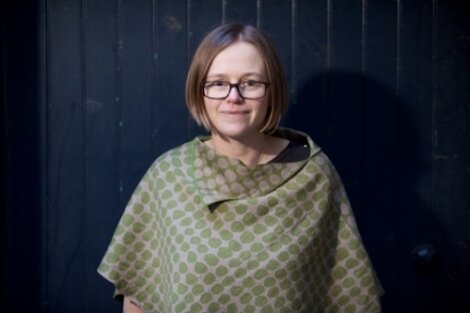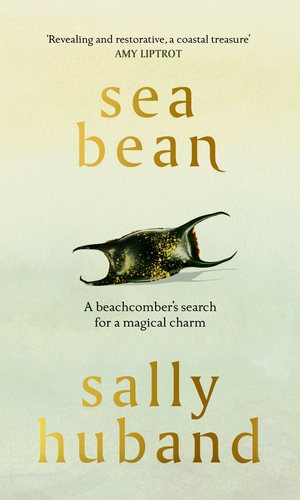Arts / Huband ‘deeply grateful’ after winning Highland Book Prize
SHETLAND based writer Sally Huband’s book Sea Bean: A Beachcomber’s Search for a Magical Charm has been named as the winner of the 2023 Highland Book Prize.
In the book the author is searching the storm beaches of her home islands. A message in a bottle, a mermaid’s purse, a lobster trap tag – each find connects her more deeply with the ocean.
But it is Huband’s quest for a fabled sea bean that unlocks the myths of the islands and carries her through chronic illness towards a new and more resilient self.
Born in Bristol in 1974, Huband lives with her daughter, son and husband in Shetland. Her work has been published in Moving Mountains, Antlers of Water and Archipelago – A Reader. Sea Bean is her first book.
Praised by the judging panel for its “engaging, subtle voice”, Sea Bean was selected from a shortlist of five. There were 76 entries in total.
One of the three judges, novelist and short fiction writer Cynan Jones, said: “Sea Bean is a magic trick! It brought wave after wave of image, within which the concerns of the book are carried in ways that land with authenticity and compassion. “Despite the careful craft in the writing itself, there’s a vulnerability in the text – a readiness to be honest – that makes it all the more affecting.”
Responding to the news, Huband said: “I’m deeply grateful for this award. It will give me the impetus to keep writing about disability, a subject that has yet to receive the space that it deserves in the literary world.”
Not entirely unsurprising, Huband’s book also touches on the very topical issue of the relationship between island communities and wind turbines, and what they represent.
Become a member of Shetland News
In the chapter Sea Glass, Huband writes on page 251: “The wind turbines of island communities can often be seen as symbols of self-determination, from the Dancing Ladies of Gigha in the Hebrides, the first community owned and grid-connected wind farm in Scotland, to the community turbine in the island of Westray, Orkney. In Shetland, the five turbines of the Garth wind farm stand in tribute to the tenacity and hard work of the community of North Yell. At Garth, each turbine is named after a local boat lost, with all lives, in the great storm of 1881. At this time, crofting tenants in Shetland were still subject to the brutality of the lairds. The naming of the Garth turbines is a powerful symbol of the dignity of autonomy.
“To my mind, the Viking turbines will come to symbolise the disempowerment of a community. They will also symbolise the impossibility of defending peatland commons when corporate power colludes with disempowering structures of local and national governance. This wind, that we have so much of here in Shetland, will be harnessed to line the pockets of the shareholders of a private multinational energy company. Our peatlands and all that they mean and are being damaged for a capitalist, extractivist development that has always had the pursuit of profit at its core. No amount of greenwashing, or claiming that the wind farm is a community project, can hide this sorry fact.”
(Extract reproduced with kind permission from Penguin Books)
Presented by the Highland Society of London and facilitated by Moniack Mhor, Scotland’s Creative Writing Centre, with support from the William Grant Foundation, the Highland Book Prize celebrates the finest published work that is created in or about the Highlands and Islands.
The prize aims to recognise the literary talent of the region.
Sea Bean: A Beachcomber’s Search for a Magical Charm was published in April 2023 in hardback, eBook and audio. The paperback was published by Penguin in April this year.






























































